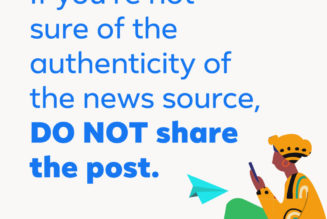People now trust robots more than themselves to manage their finances, according to a new study by Oracle and personal finance expert Farnoosh Torabi.
The study of more than 9,000 consumers and business leaders in 14 countries found that the COVID-19 pandemic has increased financial anxiety, sadness, and fear among people around the world and has changed who and what we trust to manage our finances. In addition, people are rethinking the role and focus of corporate finance teams and personal financial advisors, according to the research.
The global pandemic has damaged people’s relationship with money at home and at work, here’s how:
- Among business leaders, financial anxiety and stress increased by 186 percent and sadness grew by 116 percent; consumer financial anxiety and stress doubled, and sadness increased by 70 percent.
- 90 percent of business leaders worry about the impact of COVID-19 on their organization, with the most common concerns centering on a slow economic recovery or recession (51 percent); budget cuts (38 percent); and bankruptcy (27 percent).
- 87 percent of consumers are experiencing financial fears, including job loss (39 percent); losing savings (38 percent); and never getting out of debt (26 percent).
People see robots as a better way to manage finances
/* custom css */
.tdi_3_781.td-a-rec-img{ text-align: left; }.tdi_3_781.td-a-rec-img img{ margin: 0 auto 0 0; }
The financial uncertainty created by COVID-19 has changed who and what people trust to manage finances. To help navigate financial complexity, consumers and business leaders increasingly trust technology over people to help.
- 67 percent of consumers and business leaders trust a robot more than a human to manage finances.
- 73 percent of business leaders trust a robot more than themselves to manage finances; 77 percent trust robots over their own finance teams.
- 89 percent of business leaders believe that robots can improve their work by detecting fraud (34 percent); creating invoices (25 percent); and conducting cost/benefit analysis (23 percent).
- 53 percent of consumers trust a robot more than themselves to manage finances; 63 percent trust robots over personal financial advisors.
- 66 percent of consumers believe robots can help detect fraud (33 percent); reduce spending (22 percent); and make stock market investments (15 percent).
“Financial processes in our personal and professional worlds have become increasingly digital for many years and the events of 2020 have accelerated that trend,” says Juergen Lindner, Senior VP of global marketing at Oracle.
“Digital is the new normal and technologies such as artificial intelligence and chatbots play a vital role in managing finance. Our research indicates that consumers trust these technologies to accelerate their financial well-being over personal financial advisors and business leaders see this trend reshaping the role of corporate finance professionals. Organizations that don’t embrace these changes risk falling behind their peers and competitors; hurting employee productivity, morale and well-being; and struggling to attract the next generation of AI-empowered finance talent.”
/* custom css */
.tdi_4_fff.td-a-rec-img{ text-align: left; }.tdi_4_fff.td-a-rec-img img{ margin: 0 auto 0 0; }










